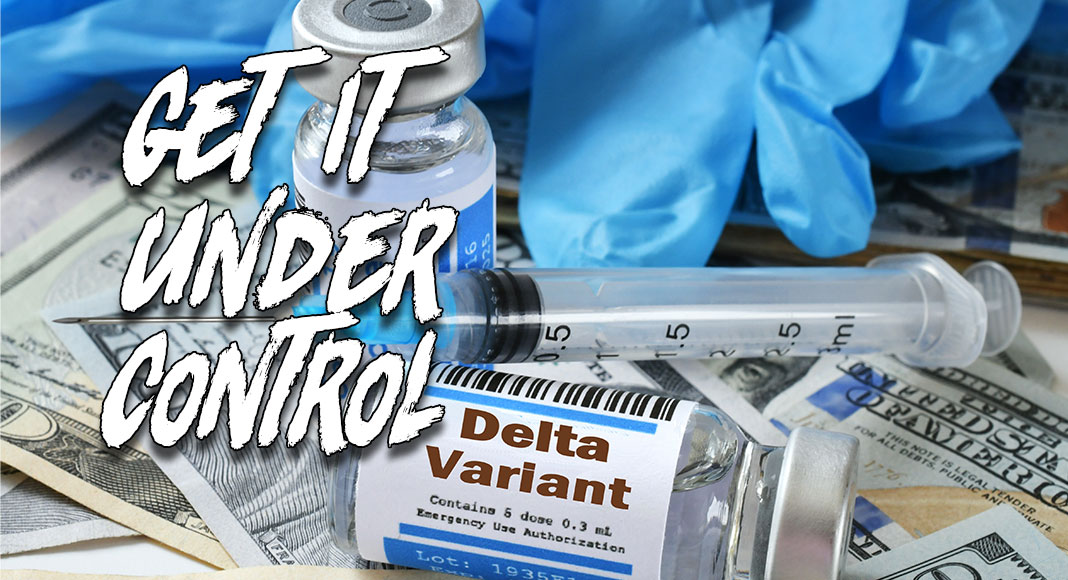
Texas Border Business
August job gains for the US were disappointing, with an increase in total nonfarm payroll employment of 235,000 and the unemployment rate down 0.2 percentage point to 5.2%. An increase of this magnitude isn’t bad by historical standards and is, in fact, somewhat above the average during the 11 years of expansion prior to the pandemic. However, it’s not the strong economic recovery from the COVID downturn we would like to see, and it’s a far smaller increase than those observed in recent months.
The primary reason is simple – the delta variant. Cases had been trending much lower through the spring and early summer as vaccination programs and other measures taken to curtail the spread of the virus led to significant progress and the beginnings of a return to more normal activity. Then came the much more contagious delta variant and cases and hospitalizations began to rise quickly, causing increased fear and reluctance to travel, additional restrictions, and other growth impediments. As I’ve said repeatedly since the pandemic started, the economic crisis was caused by a health crisis, and until the health crisis is effectively dealt with, the US will not see a robust economic recovery.
To put the August gain in perspective, 2021 monthly job growth has averaged 586,000, and June and July were particularly strong with gains of 962,000 and 1.1 million, respectively. Some industries continued to hire last month (professional and business services, transportation and warehousing, private education, manufacturing, and miscellaneous services), but others came to a screeching halt. Retail trade employment actually declined, and several industries were essentially unchanged, including leisure and hospitality (which alone had recently seen average gains of 250,000 per month), construction, wholesale trade, and health care.
The job market has come a long way since the end of the February-April 2020 pandemic recession, but certainly isn’t all the way back. Total employment plummeted by 22.5 million last spring, and we remain about 5.3 million jobs below the prior peak. Even with recent gains, manufacturing employment is down 378,000 from its pre-pandemic level in February 2020, and there are 1.7 million (10.0%) fewer leisure and hospitality jobs.
Now, with the delta variant pushing up caseloads and hospitalizations, the pace of hiring has slowed. Worse, if the surge continues, there is the potential for more significant economic disruptions with cancelled events and athletic seasons, offices remaining closed, and schools switching to hybrid or remote learning.
To get the pace of economic growth back on track, we must bring the virus under control. Common sense precautions such as masks and vaccinations can help. Obviously, the primary concern is for human health and well-being, but the economic fallout will no doubt cause additional stress. Stay safe!
______________________________________________________________________ Dr. M. Ray Perryman is President and Chief Executive Officer of The Perryman Group (www.perrymangroup.com), which has served the needs of over 2,500 clients over the past four decades.














